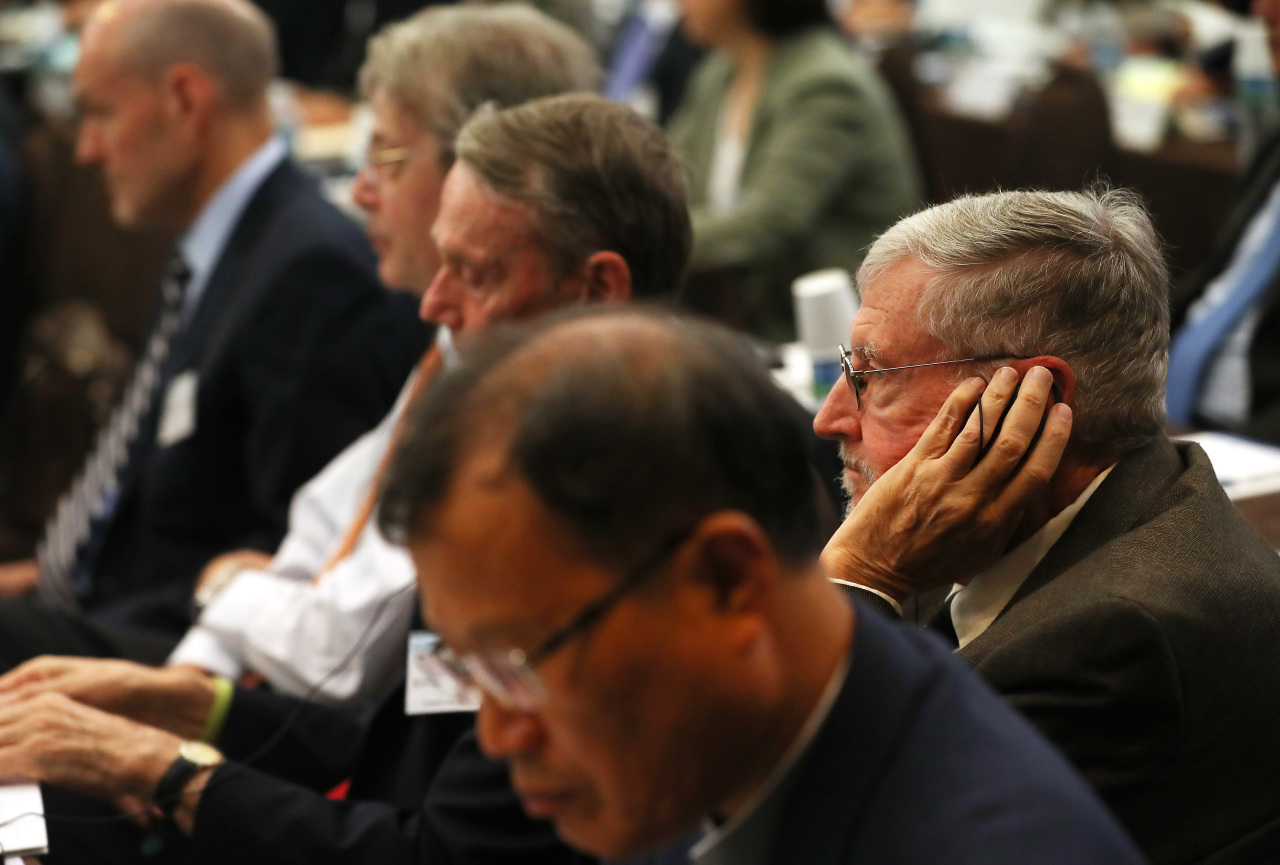North Korea will not give up its nuclear weapons, and it would be more effective to seek normalization of relations with the regime, an expert at US-based think tank said Tuesday.
John Mueller, a senior fellow at Cato Institute and a political scientist at Ohio State University, also criticized the United States as the cause of friction on the Korea Peninsula due to its “atomic obsession.”
 |
(Yonhap) |
“It doesn’t matter whether North has nuclear weapons or not. There is a good chance -- 70 percent -- that Kim is genuine about wanting to see his country become developed,” Mueller said, referring to North Korean leader Kim Jong-un, at a defense forum held in Seoul.
“So there is a chance to normalize relations permanently.”
Academics and military experts gathered in Seoul for the First World Congress of Security Studies, a defense conference hosted by Research Institute for National Security Affairs, an entity under Korea National Defense University in Seoul.
“The United States puts denuclearization before normalization of relations, which means that it would be difficult for the two Koreas to mend ties in any way unless denuclearization,” Mueller said, noting that denuclearization does not have to come first to resolve the problem on the Korean Peninsula.
The US’ “utter obsession” with North Korea’s nuclear weapons is actually the “chief tension-causing entity” on the Korean Peninsula, Mueller claimed.
“The United States has adopted an intensely hostile and threatening posture that only increases the North’s frightened desire to have nuclear weapons and the systems to deliver them,” he said.
Instead of causing more tension via such hostility, Mueller said efforts must be made for the normalization of ties with North Korea. For that, South Korea would be able to lead the North to a “much more relaxed atmosphere,” and a “highly desirable normalization of the relations” on the Korean Peninsula, he added.
Mueller, however, viewed that the reunification of the two Koreas in the near future is an unlikely scenario considering their extreme economic and cultural divergence over the last seven decades.
“The notion that they could or should be unified at any time soon is at best romantic and at worst dangerous,” he said.
“It seems very sensible for the South to expand economic and social contacts with the North and to seek family reunifications. But a conscious drive for unification would be unwise for the South and is threatening to the North,”
The two-day forum was attended by dozens of scholars and experts from at home and abroad, including Stephen Walt from Harvard University and John Ikenberry from Princeton University, to serve as a venue to discuss security in East Asia.
By Jo He-rim (
herim@heraldcorp.com)





![[KH Explains] For Korean automakers, Chinese EVs may loom larger than Trump’s tariffs](http://res.heraldm.com/phpwas/restmb_idxmake.php?idx=644&simg=/content/image/2024/11/14/20241114050537_0.jpg)
![[Graphic News] Tainan predicted top destination for South Koreans in 2025](http://res.heraldm.com/phpwas/restmb_idxmake.php?idx=644&simg=/content/image/2024/11/13/20241113050807_0.gif)

![[Herald Review] Cho Seung-woo takes 'Hamlet' crown](http://res.heraldm.com/phpwas/restmb_idxmake.php?idx=644&simg=/content/image/2024/11/14/20241114050593_0.jpg)